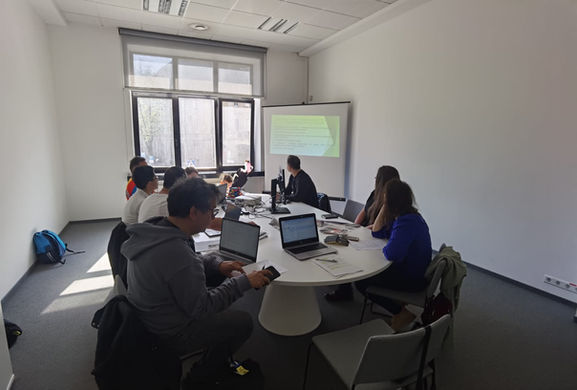
Title: Creativity for Social Inclusion (CSI)
Number: 2021-2-CZ01-KA220-YOU-000050810
Dates: 01/03/2022 - 29/02/2024
Main aim: to promote social inclusion between disabled people and especially the ones who think that disabled people are less capable of doing things.
Objectives:
Eliminating the belief that people with disabilities are unhealthy or less capable of doing things.
Telling real-life stories about the capability of doing something unexpected for disabled people.
Supporting disabled young people and providing social inclusion through creative arts & and creative mediums.
Assisting in overcoming inner prejudices and stereotypes related to disabled people with different backgrounds and finding ways of their adaptation to the youth environment.
Using creativity as a positive mechanism for promoting and fostering social inclusion/cohesion.
Modifying items, procedures, or systems to enable a person with a disability to use them to the maximum extent possible (reasonable accommodations).
Proposing sustainable youth work solutions and equipping participants with new competencies.
Making products, communications, and the physical environment more usable by as many people as possible (universal design).
Promoting fair treatment for disabled people (nondiscrimination).
Teaching skills (crafts, graffiti, dance, theatre. etc) and creating an event (exhibition, performance, etc.)
Activities:
Transnational Project Meeting (TPM1) in Lithuania
Learning, Teaching, and Training (LTT1) in Turkey
Transnational Project Meeting (TPM2) in Slovenia
Learning, Teaching, and Training (LTT2) in Czech Republic
Transnational Project Meeting (TPM3) in Turkey
Learning, Teaching, and Training (LTT3) in Romania
Transnational Project Meeting (TPM4) in Lithuania
Results:
Toolkit for youth workers and NGOs (each partner will prepare 2-3 activities like BP) on the experience and techniques regarding the use of art as a tool for social inclusion
Real-life stories/interviews of disabled people who are doing something unexpected (video format)
Theater/Flashmob/Exhibition
Social media pages of the project
Website of the project with all outputs of the project
Logo of the project
This project is funded by the European Union through the Erasmus+ program, supporting education, training, youth, and sports initiatives across Europe.
Outputs (downloadable):
Creativity For Social Inclusion
PARTNERS

Turkey

Czech Republic

Romania

Slovenia
























